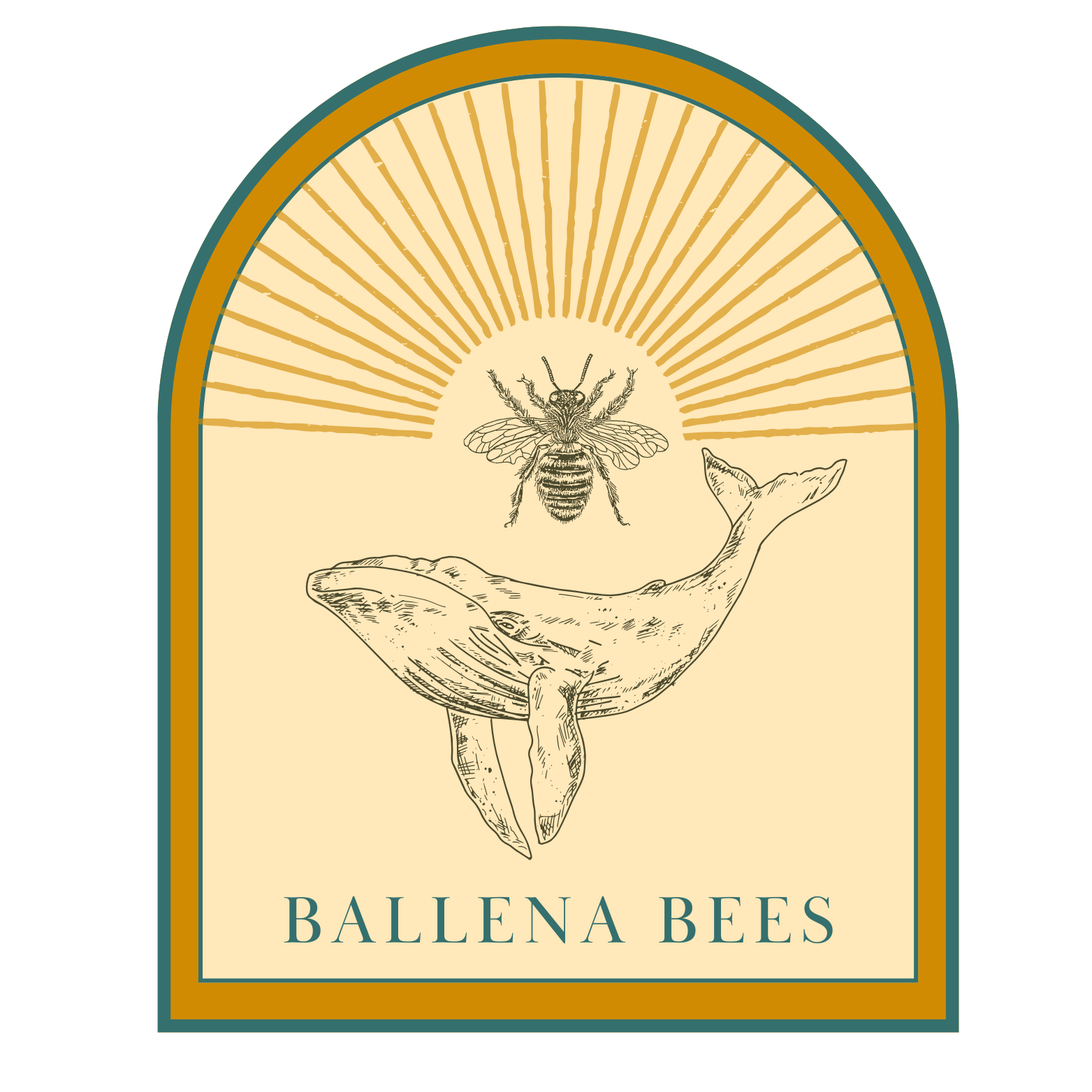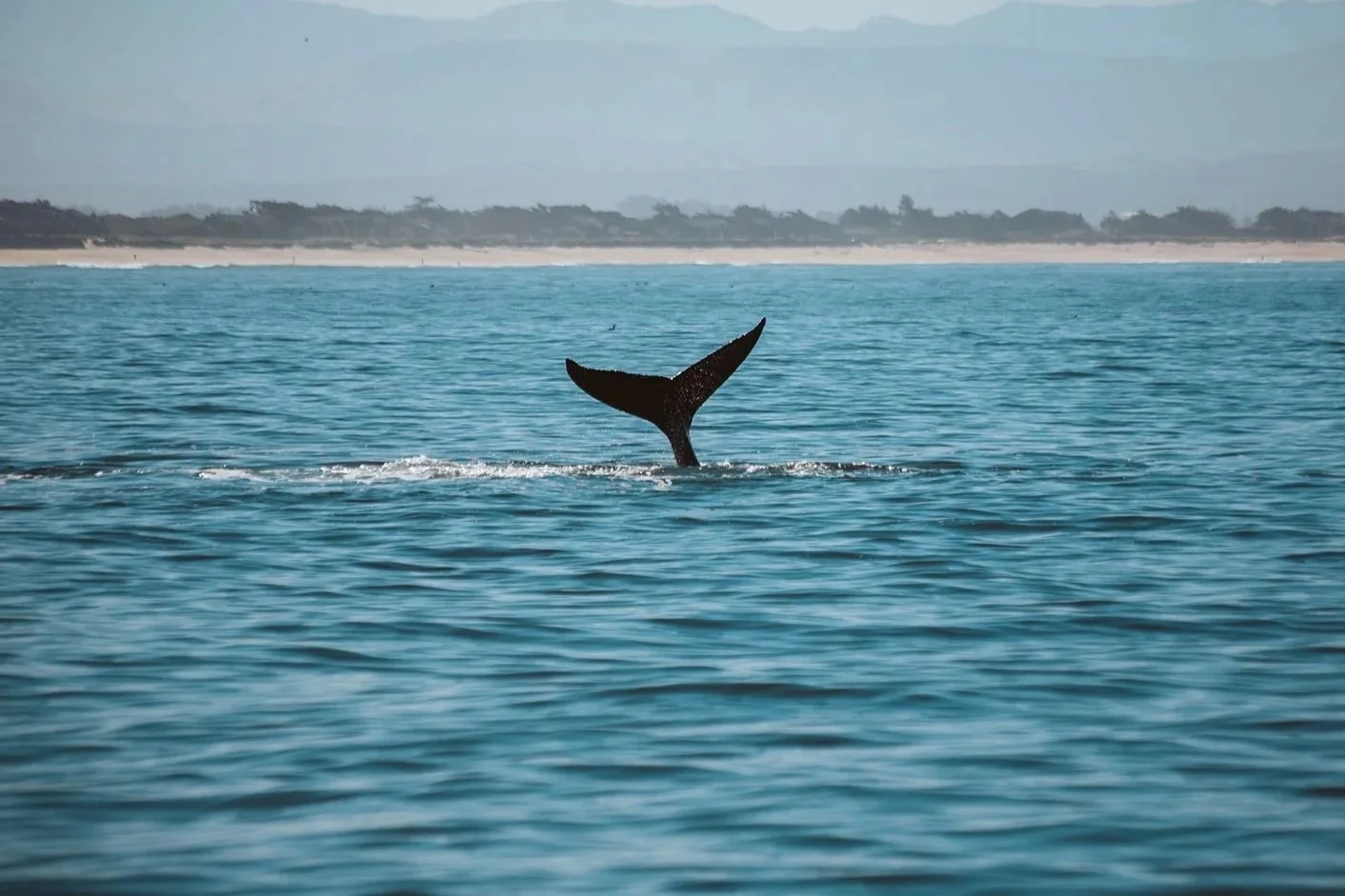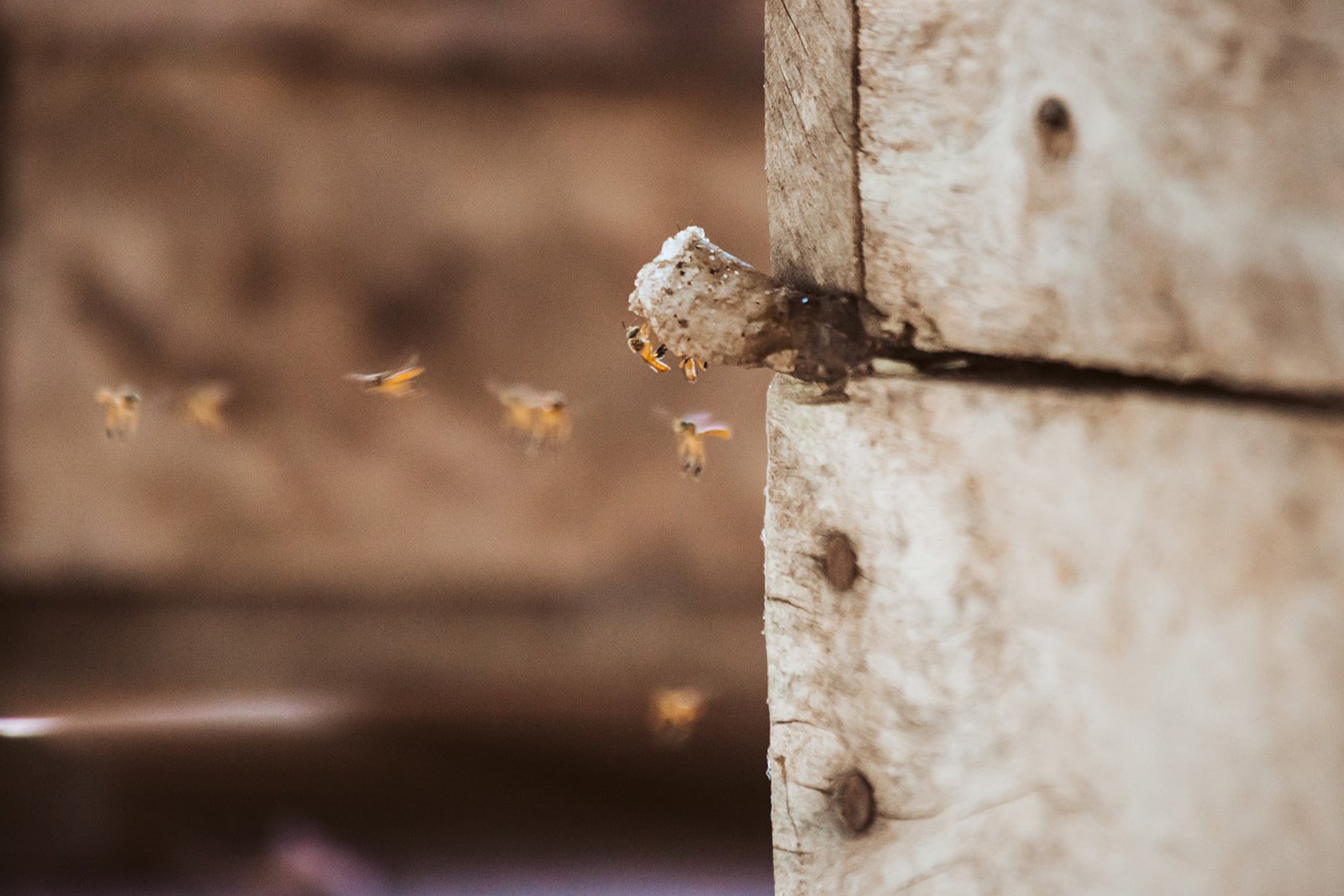
Ballena Bees Cooperative
Tending to the hive is a somatic invitation to become grounded and attuned with your surroundings; it is a time and space for slowness and observation. Being with the bees is to commune with creatures whose capacity to collaborate fills our wildest dreams for our society. We hold reverence for their profound example of cooperation and strive to reflect those principles in our educational offerings, products, and beyond.
Our approach
When we look to the world of bees, we uncover a striking metaphor for collective action. Just as a hive depends on cooperation, unity, and shared purpose, so too do social movements across the globe. Bees show us the beauty of interdependence: each member contributing to our collective well-being. Their example reminds us that a more inclusive, resilient, and supportive society is possible when we act together. Mother Earth calls to us in many voices—often subtle, often unseen—yet always present, sustaining and shaping life.
The Whales
&
The Bees
Many ask, Why Ballena Bees? Bees and whales are two creatures that we hold deep reverence for, while they are very distinct in many ways, whales and bees are more similar than we believe. These remarkable creatures teach us about the following…
Stewards of Their Ecosystems:
Both creatures play vital roles in their respective ecosystems. Bees are crucial pollinators, uplifting biodiversity, and are essential to food production. Whales also play a vital role in their ecosystem by assisting in recycling nutrients within their marine environment.
Cooperation:
Bees and whales teach us about the harmony fostered through cooperation. Bees work in colonies, collaborating to accomplish their tasks, while whales often travel in pods, working together to hunt and navigate. Honeybees are social insects, living in colonies with specific roles for worker bees, drones, and the queen bee. Whales are also social animals, often forming pods with complex social structures.
Environmental Messengers:
Bees and whales are sensitive to changes in their environments. Bees are known to be indicators of ecosystem health, and their population decline can reflect broader environmental issues. Similarly, changes in ocean conditions and pollution can significantly impact whale populations
Movement Beyond Borders:
Relative to their size, both bees and whales undertake extraordinary journeys. Bees travel miles beyond their hives in search of nectar and pollen, mapping invisible pathways that connect landscapes. Whales cross entire oceans, migrating thousands of miles each year. Together, they remind us that survival and flourishing often require us to surpass borders, whether geographic, ecological, or social, and that our world is interconnected far beyond the boundaries we create.
Ancient Wisdom:
Bees and whales are among the oldest living species on Earth, evolving alongside humans, carrying with them the memory of millions of years. Cultures across the world have held them in great reverence. Associated with life and death, these creatures remind us of the antiquity of our coevolution and connection with the Earth.
Ripples of Effect:
Bees and whales connect the sea and the land. From the mountains to the ocean and back again, they embody life’s cyclical balance. Their presence reminds us that the health of each ecosystem is tied to the whole.
Matriarchs of Love:
Both bees and whales are matriarchal. Their social structures revolve around nurturing, care, and sustaining the next generation. This emphasis on love, protection, joy, and guidance teaches us about the power of compassion and the importance of tending to our communities with care and empathy.
About Us
We are a cooperative of dreamers, mothers, artists, and community organizers from various corners of the Americas. We are united by the call of the bees and their ability to heal and transform our communities. We serve our community through educational workshops, movement building with beekeepers across the globe, and by providing handmade bee products.

-

Candles
-

Honey
-

Medicine From the Hive
-

Apitherapy & Meliponaterapia
Offerings
Medicine Derived from the Hive:
We seek to raise awareness around the healing properties of elements of the hive and provide easy access to natural remedies that support well-being. From salves, propolis, to apitherapy (bee venom therapy), we offer a variety of products derived from the bees.
Community Education:
We are committed to spreading awareness around bees and the importance of returning our food system to a holistic, localized agroecological model. We are committed to deepening our collective understanding of their healing powers. Especially in these times, when their medicine is so urgently needed, we work to share knowledge with our communities about the many ways bees support physical, emotional, and spiritual well-being. Our goal is to nurture a renewed collective relationship between humanity and the bees, seeing them not only as pollinators but also as guides, teachers, and portals into deeper connection with all beings. Through this work, we offer networks of mutual support, knowledge exchange, hands-on experiences, observation, experimentation, meditation, physical practices, and art.
Agroecological Stewardship:
We strive to be stewards of the environment, actively preserving and enhancing our local ecosystems by maintaining diverse flora and providing the bees with healthy foraging opportunities.
Movement Building:
Just as bees communicate through intricate dances to convey information vital to their hive, social movements communicate through shared narratives, activism, and advocacy. The bees inspire us to listen closely, understand the nuances of our interconnectedness, and collectively address the challenges that impact us. Inspired by this wisdom, our work brings together networks of beekeepers across the Americas and beyond, committed to preserving and protecting the ancestral knowledge rooted in beekeeping.
Meet The Bee Stewards
Yorlis Gabriela Luna Delgada:
I am a native bee without borders, an apitherapist, and a Doctor in the Science of Ecology and Sustainable Development. I have spent seventeen years working, studying, researching, and systematizing the relationships between the environment, the human body, and native and Apis bees in different contexts. My focus is integral well-being and One Health: “planetary health.”
I am passionate about helping people and agroecosystems recover homeostasis and the dignity of life. I have published research, co-created local and international healing processes, and given seminars and workshops at universities, organizations, and interest groups in various places in the U.S., China, Latin America, and the Caribbean.
I love sharing with communities my passion for bees, pollination, and the socio-ecological relationships that reconnect us with ourselves, with one another, and with the Earth. I believe in the political power of communities to recreate knowledge, justice, health, well-being, and buen vivir (living well).
Brooke Porter:
Brooke is a seed sower, beekeeper, agroecologist, and visual storyteller, committed to cultivating relationships of reciprocity with the land, bees, and communities. Through a process of interweaving the social, ecological, and political dimensions of agroecology, she actively works to create regenerative farming systems rooted in ancestral practices and collective healing. Brooke uses her ability to speak Portuguese, Spanish, and English to strengthen a movement for food sovereignty, popular education, and land justice throughout the Americas. Brooke is a co-founder of Agroecology Commons Collective located in El Sobrante, California, where you can find her tending to the educational apiary. She also stewards an apiary at Three Feathers Organic Vegetable and Flower Farm in Morgan Hill, California. She holds a Master of Science in Agroecology from the Norwegian University of Life Sciences in conjunction with Spain’s Universidad de Córdoba.





